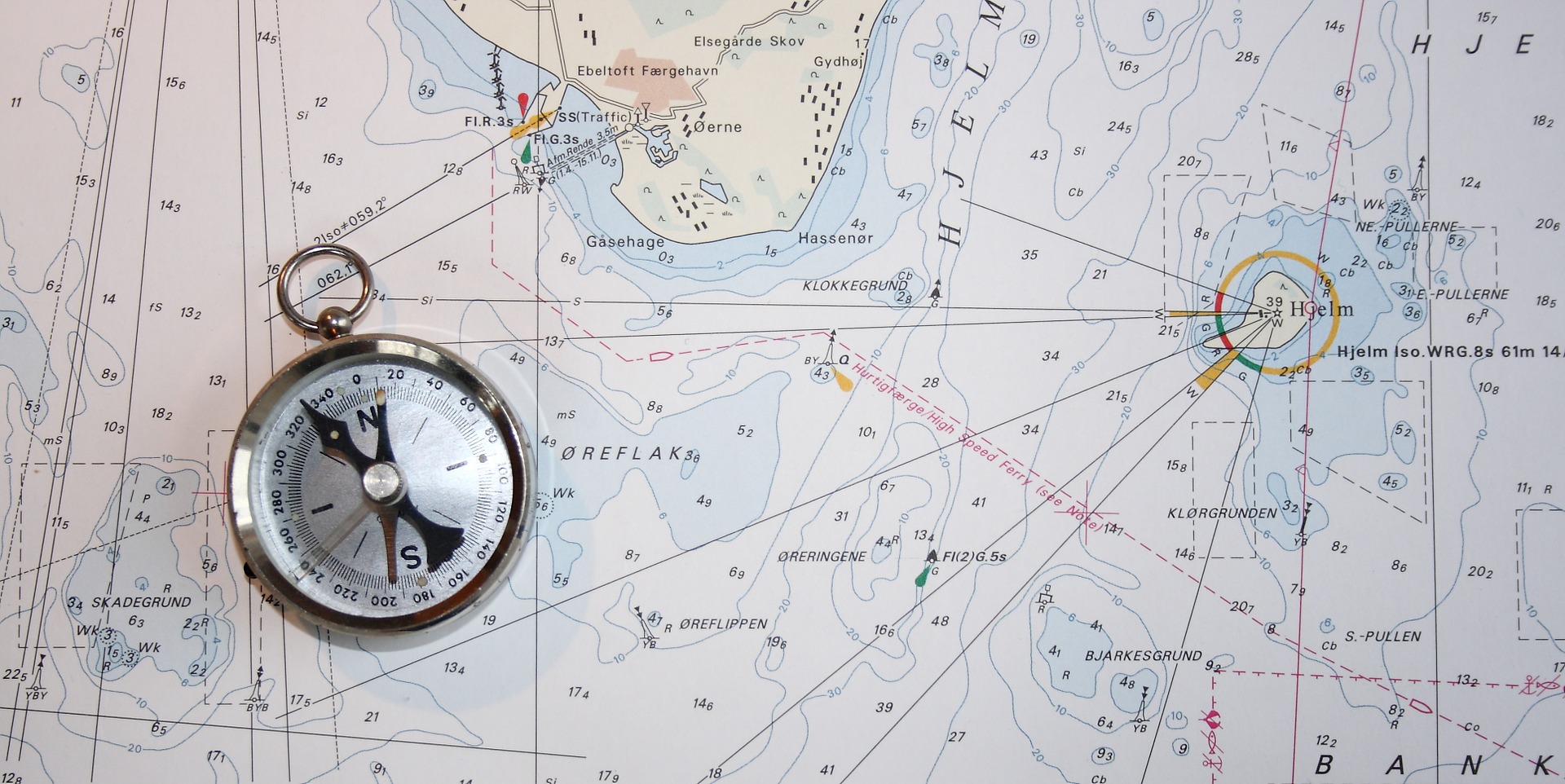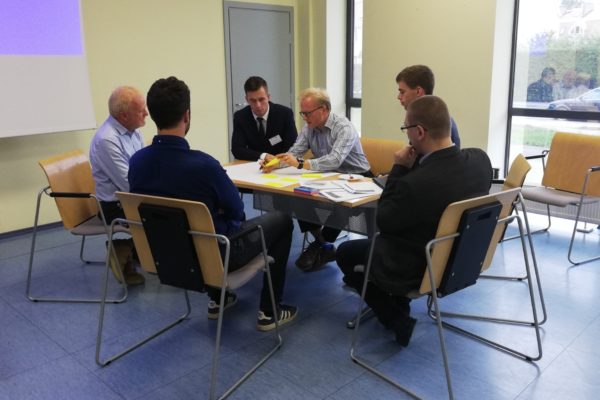This week, the first Future Foresights workshop organised by ECOPRODIGI gathered maritime sector stakeholders to Klaipeda, Lithuania. The objective of the workshop was bring those working in and with the industry together to discuss and collaborate on the process of creating a digitalisation roadmap to increase eco-efficiency in the Baltic Sea region’s maritime sector. The workshop was coordinated by ECOPRODIGI project partner Danish Maritime and moderated by strategic foresight, business model innovation and scenario-based strategising expert Dr. Matthew Spaniol from Aarhus University.
The first workshop introduced the participants to the Foresight process, forecasting methods, technology roadmapping processes, scenario planning and the way these tools can be applied in the context of maritime industry. The main part of the first workshop was dedicated to the digitalisation roadmapping process which as a whole is expected to comprise of five key elements: 1) the technology areas defined to be in the focus of the roadmap, 2) the critical factors affecting the development of these technology areas, 3) unaddressed areas, 4) implementation recommendations and 5) technical recommendations. The purpose of the process is to help stakeholders to reach a consensus and a shared understanding of what is going on currently and what is likely to happen in the future. The roadmap provides a mechanism which makes it easier to forecast future developments. It also functions as a framework to help plan and coordinate developments. In ECOPRODIGI’s case, the roadmap will also provide an opportunity to share findings and outputs of the project to the wider community of industry end-users and those working with the digitalisation and eco-efficiency of maritime industry.
The participants of the first workshop were led to the roadmapping process by working on groups which focused on some of the topics of ECOPRODIGI’s industry cases, namely digital performance monitoring and optimising shipyard process within the timeframe of 2030 in mind. Each case was analysed with the help of mission-oriented roadmapping canvas which made the participants consider the end-users of the roadmap and for what they will use it. After this, the groups had to come up with long-term objectives and targets for each of the cases in terms of grand challenges and missions, innovation pathways and policies. The grand challenge and mission parts of the work were especially tricky as formulating them is extremely important for the process as a whole. While grand challenges need to be ambitious enough to unite actors and drive progress, missions cannot be too overwhelming and need to include concrete targets. In essence, the workshop participants were asked to utilise moonshot thinking by identifying major challenges and then creating solutions to the problems by coming up with key innovations, enabling systems and mechanisms. By working backwards from long-term objectives and targets to ways to reach them from the current situation, the participants were able to get better grip of the bigger picture and the needs for action.
So what were the outcomes and impressions of ECOPRODIGI’s first Future Foresights workshop? By working on groups focusing on the industry cases, the participants came up with various grand challenges such as 25% emission reductions, sustainable shipbuilding processes, ecosystem-wide information integration and improved competence levels for maritime sector. The missions included ideas such as transparent digital end-to-end supply chain networks, diversification of ship types, zero-carbon shipyards and increased automation of processes. The discussions also provided valuable insight into how far the industry is from achieving such long-term objectives and what kind of measures and innovations are needed to solve the major challenges. ECOPRODIGI’s second Future Foresights workshop, organised in Denmark on the 20th of November, will continue building on the results of the first workshop and delve deeper into scenario development and roadmapping refinement. The outcome of the whole process will be a digitalisation roadmap for increasing eco-efficiency in the Baltic Sea region which will be disseminated to the various maritime sector stakeholders.







